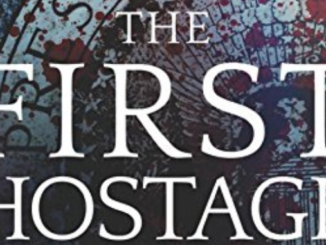
Published by IVP Academic on July 30, 2024
Genres: Academic, Non-Fiction, Apologetics, Christian Life, Theology
Buy on Amazon
Goodreads

How do we know the New Testament is reliable?
It matters―but discussions on whether the New Testament is historically accurate can be tedious and overwhelming. We want to be confident that the reports in the New Testament are true and dependable, but scholarly discussions around the authenticity of the events recounted in Scripture can be challenging to navigate.
Dr. Ben Shaw provides the clear introduction we've needed for understanding the New Testament's historical reliability. In his book, Trustworthy, he systematically surveys key issues related to New Testament reliability and provides guidance for those setting out to explore the evidence. Concise, to-the-point chapters equip readers to answer the challenging questions one encounters when discussing the credibility of the New Testament. Addressing a wide variety of evidence including archaeology, authorship, text criticism, and non-Christian sources, Shaw leads readers through the key scholarly topics related to New Testament reliability.
Here's the truth: we can trust the New Testament not only for its historical accuracy but also as a guide to life.
I have read a number of books about Scripture’s reliability, and this one stands out as a particularly excellent one. This book is just 140 pages long, but it covers thirteen different arguments for why the New Testament is trustworthy. Benjamin Shaw explores each argument individually, shows how these evidences overlap and reinforce one another, and summarizes views from New Testament scholars from varied backgrounds. At the end of each chapter, Shaw recommends other books for further reading. Overall, he makes a strong case for why we can trust the accuracy of the transcribed words in the New Testament, as well as the accuracy of its message.
Shaw explains at the beginning of this book that he is writing this to a broad audience of both “disciples and doubters.” He notes that even though some of his points will seem obvious to some readers, he knows from personal experience how surprising it can be to learn some of these seemingly obvious things. This book addresses Christians who are looking to better understand the New Testament, Christians with doubts and questions about the Bible, and skeptics and curious people from other belief backgrounds. I would recommend this book to all of these audiences.
Even though this is an academic book, it is highly readable and accessible. I appreciate Shaw’s down-to-earth writing style, clear explanations, and brevity. Academically inclined readers can dive deeper through the footnotes and suggested reading lists, but the main text is very forthright and direct, focusing on the main issues without getting into the minutiae of side issues and debates. This book is accessible to the average reader, and you don’t need a scholarly background or an academic level of interest to fully engage with and benefit from this book.
Trustworthy: Thirteen Arguments for the Reliability of the New Testament is concise, clear, and powerful. Shaw explains essential standards for evaluating ancient texts, and he shows how and why the New Testament upholds and exceeds these standards. This book is especially helpful because it is so short and focused, highlighting the strongest arguments that the largest number of scholars from different backgrounds agree on. Also, in contrast to older books on the subject, this one includes up-to-date information about more recent research and archaeological discoveries. I greatly appreciated this book, and I highly recommend it to anyone who is interested in the topic from a religious, historical, or cultural perspective.



